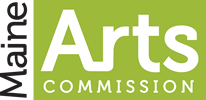
Maine shares a state border with New Hampshire and an international border with the Canadian provinces of New Brunswick and Quebec. Maine has an ocean border on the Atlantic Ocean with the Gulf of Maine and the Bay of Fundy. Entry into Canada is determined by Canada Border Services Agency (CBSA). Entry into the U.S. is determined by US Customs and Border Protection (CBP).
Crossing the international border between Canada and the U.S. will require an inspection by Immigration & Customs, which can include a vehicle inspection. Citizens of other countries may be required to have a passport and/or visa. Different regulations apply to pedestrians and motor vehicles than to boats and aircraft. Depending on the mode of transportation, different ports of entry may be required. Travelers who frequently travel to and from Canada may want to investigate the CANPASS.
Crossing Overview
U.S. citizens entering Canada must have proof of U.S. citizenship. This could include:
- A U.S. passport
- A U.S birth certificate
- A certificate of citizenship
- A naturalization certificate and valid photo identification such as a drivers license
Permanent residents of the U.S. must have
- A U.S. green card.
U.S. children entering Canada must have identification, regardless of age, and be accompanied by an adult, and:
- Parents entering Canada with their own child must have the child's proof of citizenship, such as a certified birth certificate.
- One parent travelling with a child must have a letter of permission, containing contactinformation for the other parent or legal guardian.
- An adult with legal custody or shared custody of the child must have copies of relevant legal documents, such as custody rights.
- For a non-parent or non-legal guardian traveling with a child requires a letter of permission or authorization of custody, including contact information for the child's parents or legal guardian.
Canadian Citizens returning to Canada must have at least one of the following:
- A Canadian passport; or
- A Canadian birth certificate; or
- A permanent residence card; or
- A citizenship card; or
- A certificate of Indian Status
Additional Information
Visitors are required to have the necessary travel documentation and be in good health. If asked, they must answer questions to the satisfaction of an immigration officer. Standard questions someone might be asked include:
- "Where are you from?"
- "Where are you going?"
- “Where will you be staying?”
- "How long will you be in the country?"
- "What is the purpose of your trip?"
- "Do you have any alcohol, tobacco products or fire arms?"
Persons crossing the border must carry proof of identity and citizenship. All travelers are required to have a valid passport until the end of their stay.
Persons can be denied entry across a border on the basis of suspicion alone. A single criminal conviction (no matter how minor or how long ago) may be used as grounds for exclusion. Other reasons that entry may be denied include:
- Security reasons
- Criminality related reasons
- Health reasons (if a condition is likely to endanger public health or safety)
- Financial reasons (if a traveler is unable or unwilling to support themselves)
- Misrepresentation about who you are
- Having an inadmissible family member
Visitors to the U.S. who are at least 21 years of age may bring the following into the country: 200 cigarettes or 50 cigars or 2 kilograms (4.4 lbs.) of tobacco; 1 liter of alcohol and gifts to the value of $100.
Visitors to Canada may bring the following into the country: 200 cigarettes, 50 cigars, and 14 ounces of tobacco; 1.1 liters of liquor or wine or 24 x 355-milliliter (12-ounce) bottles or cans of beer for personal consumption; gifts up to the value of C$60 per gift.
For additional cross-border information, please visit either of the following web sites: Canada Border Services Agency (CBSA) or U.S. Customs & Border Protection (CBP).
Main Land-Crossing Points
Calais/ St. Stephen, International Avenue
Ferry Point International Bridge
207/454-3690
Houlton / Richmond Corner
Maine I95 / Canada Hwy. 2
(207) 532-2131
Vanceboro / Saint Croix
Maine Route 6 / New Brunswick Route 4
(207) 788-3907
Edmundston-Madawaska Bridge
US Hwy. 1 / New Brunswick 120
(207) 728-4376
Air
The Portland International Jetport is Maine’s primary commercial resource for air travel. Bangor International Airport also accommodates commercial air traffic. Regional airports include:
- Northern Maine Regional Airport at Presque Isle
- Hancock County-Bar Harbor Airport
- Knox County Regional Airport
- Augusta State Airport
Click here for a PDF of all major crossing points between Maine and Canada.
The website ezbordercrossing is also a good resource for U.S.-CA travel.
